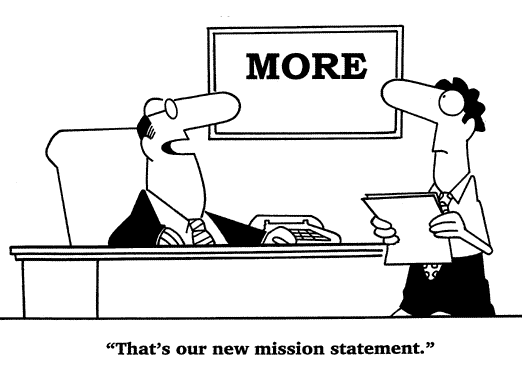 We notice other people’s personalities. Usually we come quickly to a view about them. First impressions are important – and seldom wrong. Another’s personality is his or her culture. It reflects their background and character.
We notice other people’s personalities. Usually we come quickly to a view about them. First impressions are important – and seldom wrong. Another’s personality is his or her culture. It reflects their background and character.
When you are thinking of joining a company you do your due diligence, finding out about it from its web site, its published accounts, its press reports and the views of anyone you think knows it well enough to be worth listening to.
How much can you learn about the company from these sources? Quite a lot, actually. But if you stick only to the hard data you will miss the most important consideration in deciding whether to join it – its culture.
Culture is the way a company behaves, the way it treats its customers, staff, suppliers and its other stakeholders. Every company has a culture. It is the only truly Unique Selling Proposition (USP) it has. Every other advantage it claims over competitors will be matched by their claims. Their culture is unrepeatable.
Where does a culture come from? The founder(s) of a company give it its original culture. The current bosses decide today’s culture.
How does a culture manifest itself? It is the sum of everything it does but it can be seen in the smallest individual act. The greeting by the receptionist, the treatment of suppliers who have not been paid promptly, what happens to staff when they resign – all these emanate from the culture of the business. If the faces of the staff are pinched and tired and look like scared rabbits you’ve got a Genghis Khan culture. If the staff smile, appear open with each other, cooperate, know their products, help but don’t hassle, you’ve got a good CEO in charge – and a good culture.
There are many simple ways of testing the culture of a business. One that I employ is to deliberately turn up at the wrong reception area and see how the staff there handle it. I don’t have to tell you the difference between the supermarket where they take you to the shelf of the product you are seeking and the one where they point in a vague direction and let you find it for yourself.
So it is with companies; some are helpful, some are not. A company that doesn’t help its customers or its suppliers won’t help its staff either.
A friend of mine recently resigned from an MNC after a fairly short career with the company. My friend came to the wholly reasonable conclusion that all-night working on the odd occasion was acceptable but when it was regularly four nights in a row, it wasn’t.
If you had been the boss what would you have done in that situation? Not, I hope, what the MNC did.
They harassed, attempted to bribe the person to stay, and finally openly bullied their departing employee – especially when two more employees walked out for much the same reasons.
What did they achieve?
Massive alienation by a significant number of people who will never touch their products again. That’s the sort of PR you don’t need.
What should they have done?
Talked a little, listened a lot. They could have learnt a golden lesson, had a well-disposed ex-employee, achieved good PR. They might even have kept the employee they feared to lose. Most of all, they might have understood the problem they had created.
But their culture didn’t allow them what they saw as a soft approach so they took the only one they knew. Trouble is, blowing out the brains of departing employees isn’t actually a very clever way to keep them – or anyone else – on side.
I wonder if they’ll learn that.
* * *
 John Bittleston blogs at TerrificMentors.com, a site that provides mentoring for those who wish a change in career or job, wanting to start a business or looking to improve their handling of people (including themselves).
John Bittleston blogs at TerrificMentors.com, a site that provides mentoring for those who wish a change in career or job, wanting to start a business or looking to improve their handling of people (including themselves).
 Management has always been a fashion horse incorporating the latest ‘new’ inventions. They are dreamt up by business-seeking consultants sweeping away the last lot of expensively-bought solutions. Fortunately, business managers have a good deal of common sense and resist the more outlandish offerings in favour of prudent finance, disciplined control and measured risk-taking.
Management has always been a fashion horse incorporating the latest ‘new’ inventions. They are dreamt up by business-seeking consultants sweeping away the last lot of expensively-bought solutions. Fortunately, business managers have a good deal of common sense and resist the more outlandish offerings in favour of prudent finance, disciplined control and measured risk-taking. John Bittleston blogs at TerrificMentors.com, a site that provides mentoring for those who wish a change in career or job, wanting to start a business or looking to improve their handling of people (including themselves).
John Bittleston blogs at TerrificMentors.com, a site that provides mentoring for those who wish a change in career or job, wanting to start a business or looking to improve their handling of people (including themselves).
 We notice other people’s personalities. Usually we come quickly to a view about them. First impressions are important – and seldom wrong. Another’s personality is his or her culture. It reflects their background and character.
We notice other people’s personalities. Usually we come quickly to a view about them. First impressions are important – and seldom wrong. Another’s personality is his or her culture. It reflects their background and character.
